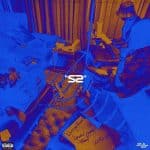Latest Songs
-
Ayox – WALKING DEAD Ft. Zlatan
7 months ago -
Rod Wave – Nostalgia album
7 months ago -
Denzel Curry SKED Mp3 Download
7 months ago -
Mohbad – Walking Dead Mp3 Download Audio
7 months ago -
Fridayy – Church On SundayMp3 Download Audio
7 months ago -
Lil Durk – Just Cause Y’all Waited 2 Album
8 months ago -
Johnny Drille – Spending
8 months ago
More Songs
Latest News
More NewsLatest Posts
-
Wizkid – S2 EP (Album)
4 months ago

![[Music] Zerry dl – Puff & Pass Mp3 | Free Audio Download](https://mohamedia.com.ng/wp-content/uploads/2023/10/Zerry-dl-Puff-and-Pass-BazeMack-com_-mp3-image-150x150.jpg)










